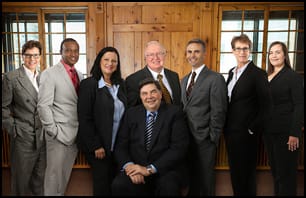Jobs Bill
Recent News of Interest to Employers
Are You Covered?
Many employers purchase Employers Practices Liability Insurance (“EPLI”) to cover the risk of an employment claim or lawsuit. However, does the language in the policy
really cover your potential loss? One employer found out that, depending on who your plaintiff is, its EPLI policy was not worth the paper it was written on. In
Cracker Barrel Old Country Store v. Cincinnati Insurance Company, No. 3:07-cv-00303 (M.D. Tenn.), Cracker Barrel sought coverage from Cincinnati Insurance for a discrimination lawsuit brought by the Equal Employment Opportunities Commission (“EEOC”). The insurance policy definition of a “claim” was limited to those brought by “any past, present or prospective ’employee(s)'” as opposed to one brought by an administrative agency like the EEOC. The judge wrote, “the complaint that commenced the EEOC lawsuit was not brought by an employee, and, therefore …the lawsuit is not a ‘claim’ under the Policies.” Cracker Barrel paid significant sums of money to settle the damages and attorney fee claims. Employers with EPLI policies should review their coverages to see if actions by administrative agencies are included. If those types of claims are not included, the insurer may have another endorsement to purchase or the employer can shop around as policies from different insurers are not always the same. As with any purchase,
caveat emptor! (“buyer beware”)
The Department of Justice Takes Aim at the “Ministerial Exception”
Religious organizations enjoy certain freedoms to make employment decisions that other employers cannot make. One of these freedoms is to take employment action against an employee based upon a “ministerial exception.” In other words, a religious organization is “excepted” from the application of discrimination laws where decisions concerning certain employees, like ministers, are involved. A court, in evaluating a discrimination claim by an employee against a religious organization, would look at whether the employee’s job responsibilities render the employee “important to the spiritual and pastoral mission of the
church.” If so, the court generally will not entangle itself in matters of the church and refuse to interfere with its employment decision.
On Wednesday, October 5, 2011, the United States Supreme Court will hear arguments in the case of
Hosanna-Tabor Church v. EEOC, No. 10-553. The case involves a teacher at a religious school who was asked to resign when a medical condition required her to take off a substantial amount of work. When she threatened a lawsuit under the Americans with Disabilities Act, the church congregation voted to terminate her. The case was initially dismissed by a district court, but the Sixth Circuit Court of Appeals reversed that decision. The church takes the position that the “ministerial exception” applies to teachers and that the courts may not interfere with its decision. The Government has argued that the exception should not apply to teachers. The Supreme Court has not addressed the ministerial exception itself so the potential decision is being closely-monitored by religious institutions.
The President’s Jobs Bill Makes The “Unemployed” A Protected Class
Recently President Obama addressed, at his request, a rare joint session of Congress exhorting the members to “pass this bill!” The President’s Jobs Bill, which is now posted on line, includes at Sections 371-379, a potential law called the “Fair Employment Opportunity Act of 2011.” This bill proposes the creation of a new protected class in the discrimination laws, the “status as unemployed.” Under this proposal, it would be unlawful for employers to publish in any advertisement or job announcement that a person’s status as unemployed disqualifies a person from employment or that a person will not be considered if they are unemployed. It would also be illegal to refuse to consider or hire a person because of the person’s status as unemployed or to direct an employment agency not to consider a person who has an unemployed status. The enforcement mechanisms available under Title VII (the EEOC) of the federal discrimination laws would be used for claims brought under the law, if passed.

